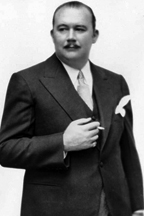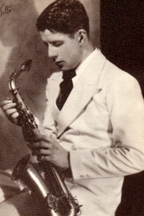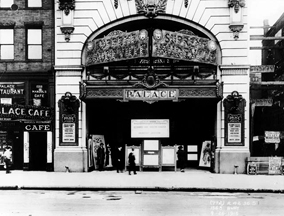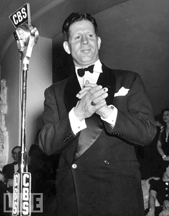In Chapter 15 of his 1930 memoir, Vagabond Dreams Come True, Rudy Vallée pays homage to the man who served as his saxophone mentor and muse, Rudy Wiedoeft.
THE SAX GOD—WIEDOEFT
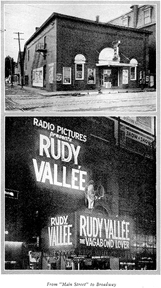 I took up the study of the trumpet while working back stage with a stock company, and then rented a saxophone when I began my senior year in school. The similarity between saxophone and clarinet made it possible for me to play a limited range of notes on the saxophone. The horn that I had was called a C Melody, being pitched in C. I could read song sheets, the violin parts, without any transposition. I used to play at night with several acquaintances who gathered in a bowling alley where near beer was served, and go canoeing with a banjo player or a violinist. Always I played for my own amusement and for those who cared to listen. Finally I was engaged by a small dance orchestra playing two nights a week in a Pythian Temple Building. This led to more engagements in northern Maine with what had been Maine’s most famous dance orchestra, Welch’s Novelty Orchestra.
I took up the study of the trumpet while working back stage with a stock company, and then rented a saxophone when I began my senior year in school. The similarity between saxophone and clarinet made it possible for me to play a limited range of notes on the saxophone. The horn that I had was called a C Melody, being pitched in C. I could read song sheets, the violin parts, without any transposition. I used to play at night with several acquaintances who gathered in a bowling alley where near beer was served, and go canoeing with a banjo player or a violinist. Always I played for my own amusement and for those who cared to listen. Finally I was engaged by a small dance orchestra playing two nights a week in a Pythian Temple Building. This led to more engagements in northern Maine with what had been Maine’s most famous dance orchestra, Welch’s Novelty Orchestra.
